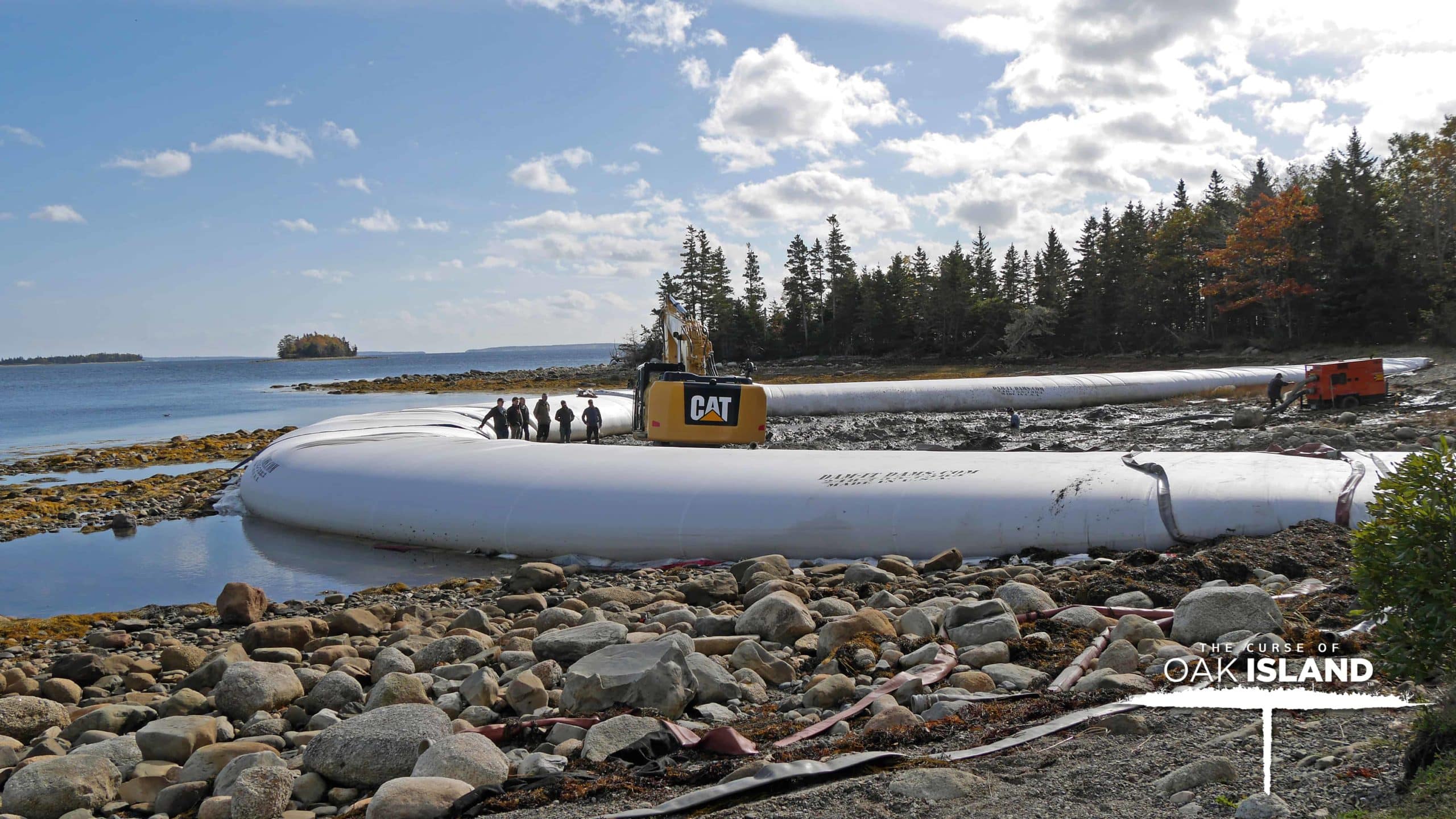Nothing is better than the humble cofferdam for most water intrusion control methods. However, dozens of techniques and construction materials are used for cofferdams, from earthwork to inflatable, and each comes with pros and cons. So, what are cofferdams, and which is best for your next project? Here we will break them down from worst to best, with the criteria being versatility, ease of construction, ecological impact, and, most importantly, safety.
Earthwall And Rockfill Cofferdams
The most straightforward and classic cofferdam is the one that is made by piling up a large amount of dirt and blocking water flow with nothing more than the earth itself.
Pros of Earthen Cofferdams: Earthen or rock-filled cofferdams can be constructed on-site using dirt and braced with sandbags.
Cons of Earthen Cofferdams: They can only be constructed with low water levels and pose significant hazards to workers. Earthen cofferdams should only be used in shallow waters and can erode over time, meaning constant repairs and potential safety risks.
Single And Double Walled Cofferdams
Walled cofferdams differ from earthen and rockfill as they require significant setup and offsite materials and can be constructed in deep waters without waiting for the water level to fall.
Pros of Walled Cofferdams: Walled cofferdams can be constructed almost anywhere and are among the best for deeper water construction beyond depths of 12 feet.
Cons of Walled Cofferdams: These types of cofferdams are expensive. They require trained professional cofferdam construction experts to install safely and need expensive or large equipment for setup and takedown. Furthermore, walled cofferdams are one of the least environmentally friendly as they require extensive damage to the bottom of rivers or lakes for installation and cannot be quickly deconstructed.
Cellular Cofferdams
Cellular cofferdams are an interconnected system of steel cofferdams constructed by installing steel web-like sheets driven into the ground by heavy equipment. This method of damming offers the deepest levels of water penetration and is used primarily when the water depth is too great for any other type of cofferdam.
Pros of Cellular Cofferdams: They are great for deep water and, if installed correctly, offer a safe and watertight environment that can protect workers in unstable tidal conditions.
Cons of Cellular Cofferdams: Cellular cofferdams are the most expensive option for damming an area and should only be considered when there is no other choice. Additionally, they are often permanent and cannot be removed without an extensive deconstruction process that costs almost as much as the installation.
Inflatable Cofferdams
The most versatile and efficient damming method is with an inflatable cofferdam. Despite looking like an oversized balloon, a lot is going on in inflatable cofferdams, which makes them incredibly durable, quick to set up or take down, and the most cost-efficient of any choice. Inflatable dams work by inflating with the water they are damming by channeling it through a series of interconnected baffles housed within a single geo-textile casing.
Pros of Inflatable Cofferdams:
- Quick and easy setup requiring minimal equipment and crew without the need for specialized training or materials.
- Temporary and reusable.
- Eco-friendly and with a multitude of uses offering unrivaled versatility.
- Cost-effective and much less expensive than other damming methods per foot of water blocked.
- Useful for flooding protection, construction, shoreline restoration, and much more.
Cons of Inflatable Cofferdams: The only drawback of an inflatable cofferdam is that they have a limited depth and can struggle in water deeper than 12+ feet.
Find Out If An Inflatable Cofferdam Is Right For You With Help From Dam-It-Dams
Our inflatable cofferdams are the best on the market and bring you peace of mind, no matter your project. Visit us online or give us a call at 810-695-1695 to get your free quote and cofferdam consultation.


